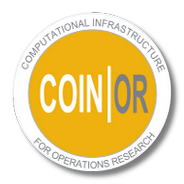Call For Nominations For Board of Directors, COIN-OR Foundation
Nominations are solicited for candidates for the position of director
on the Strategic Leadership Board (SLB). All positions are
for three-year terms (through December 31, 2027). Any interested
individual is eligible to be a director of the Foundation.
COIN-OR is evolving rapidly, and directors can have a significant
influence on the development of the Foundation. Candidates should be
actively interested in COIN-OR and committed to active participation
in Foundation business. For more information on the activities of and
expectations for directors, prospective candidates are encouraged to
contact any current directors or the Foundation Secretary
(secretary at coin-or.org).
Note that membership in COIN-OR is not required. Candidates with
expertise in the software industry or experience as a director for a
non-profit organization will be eagerly welcomed.
The Foundation encourages the nomination of any interested individuals,
particularly users of COIN-OR software, who have not previously
been active participants in COIN-OR projects. Diversity of viewpoints
and skills is both needed and appreciated.
For all director positions, a candidate may be nominated by any
interested individual. Self-nomination is encouraged. All nominations
must be seconded by a full member of the Foundation.
Nominations should be emailed to the Secretary (secretary at
coin-or.org) and will be accepted until November 15, 2024. Candidates
must agree to be nominated and will be contacted to provide a short
biography and statement to be distributed to the full members of the
Foundation prior to the election.
